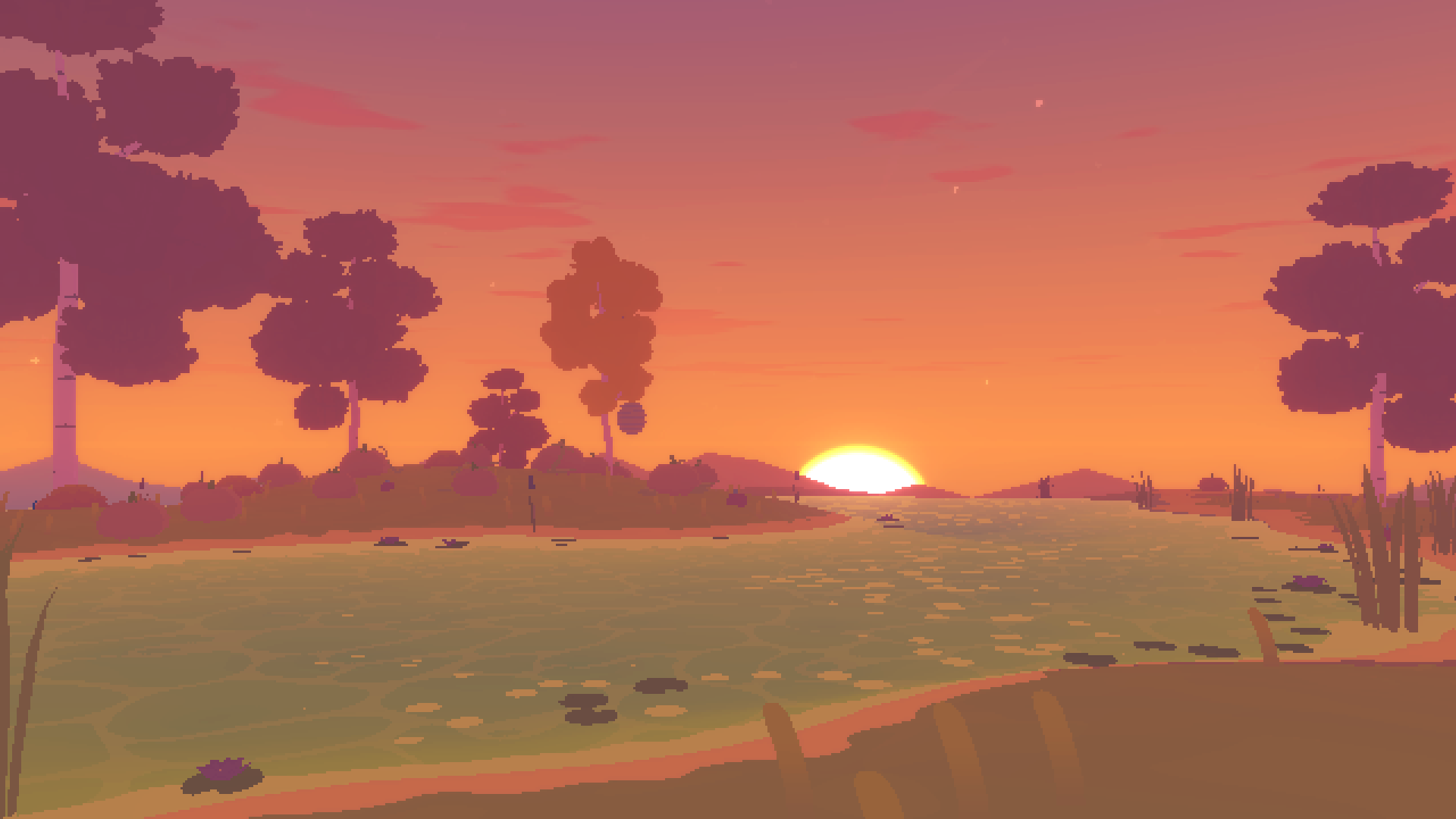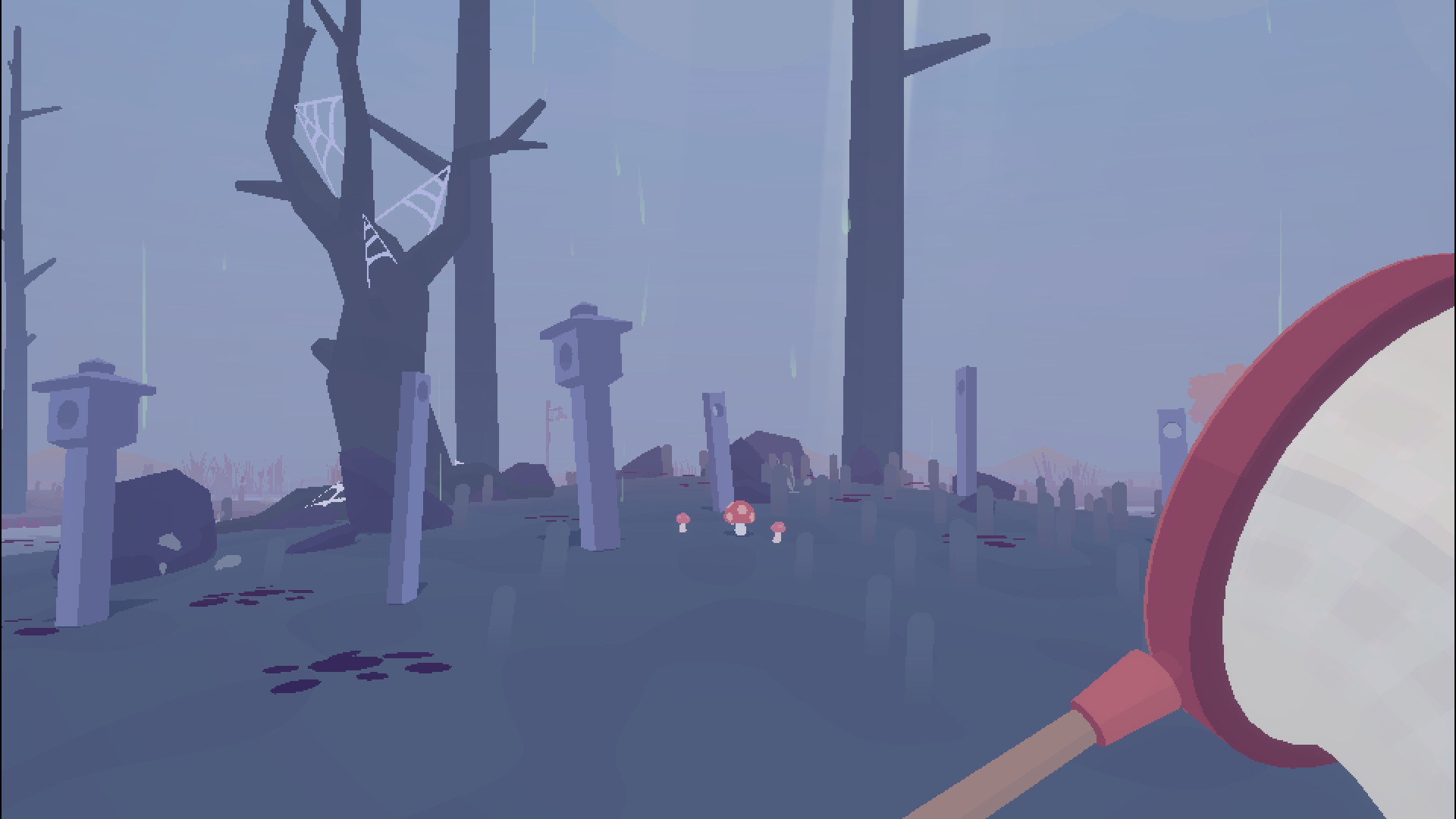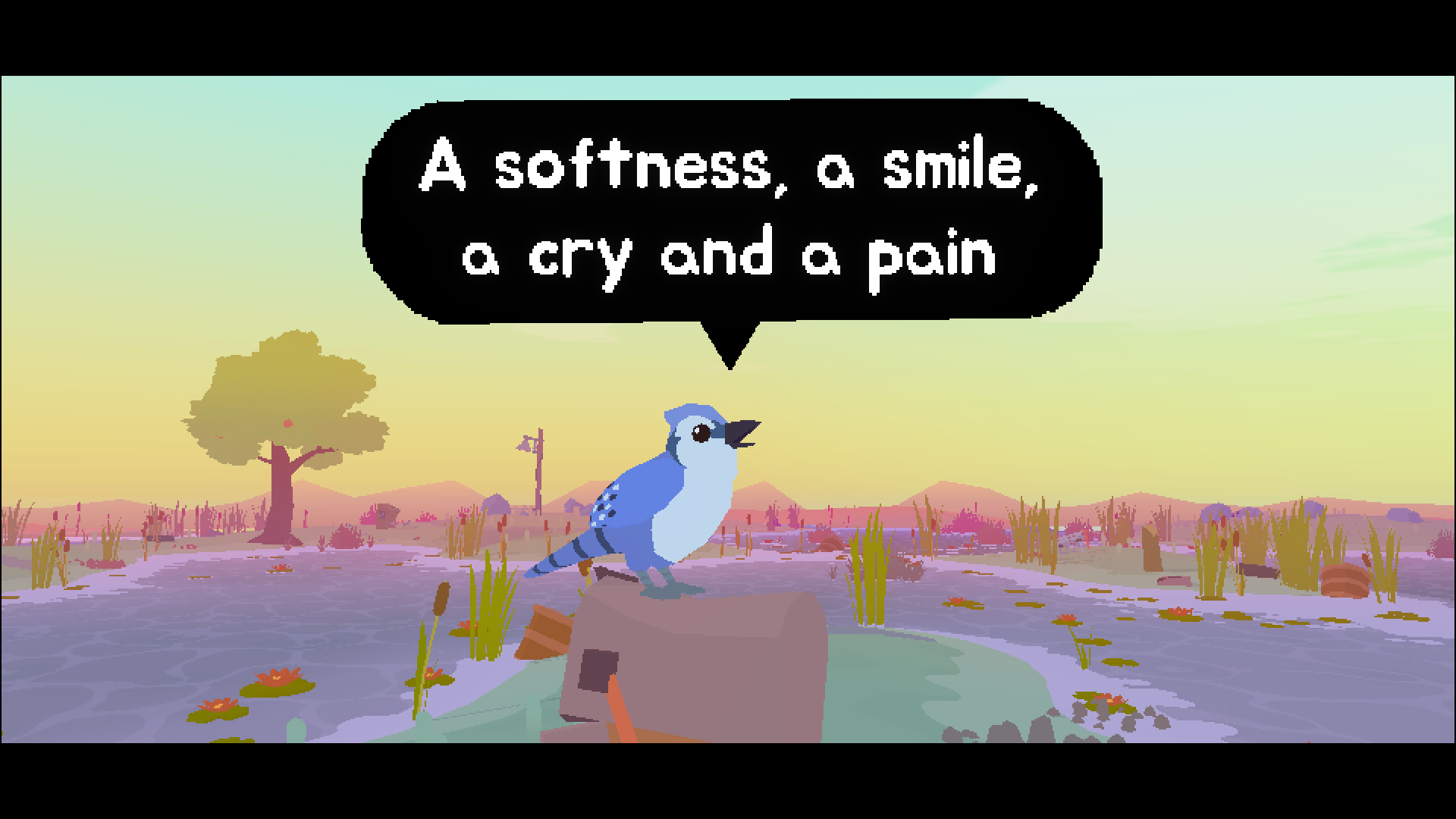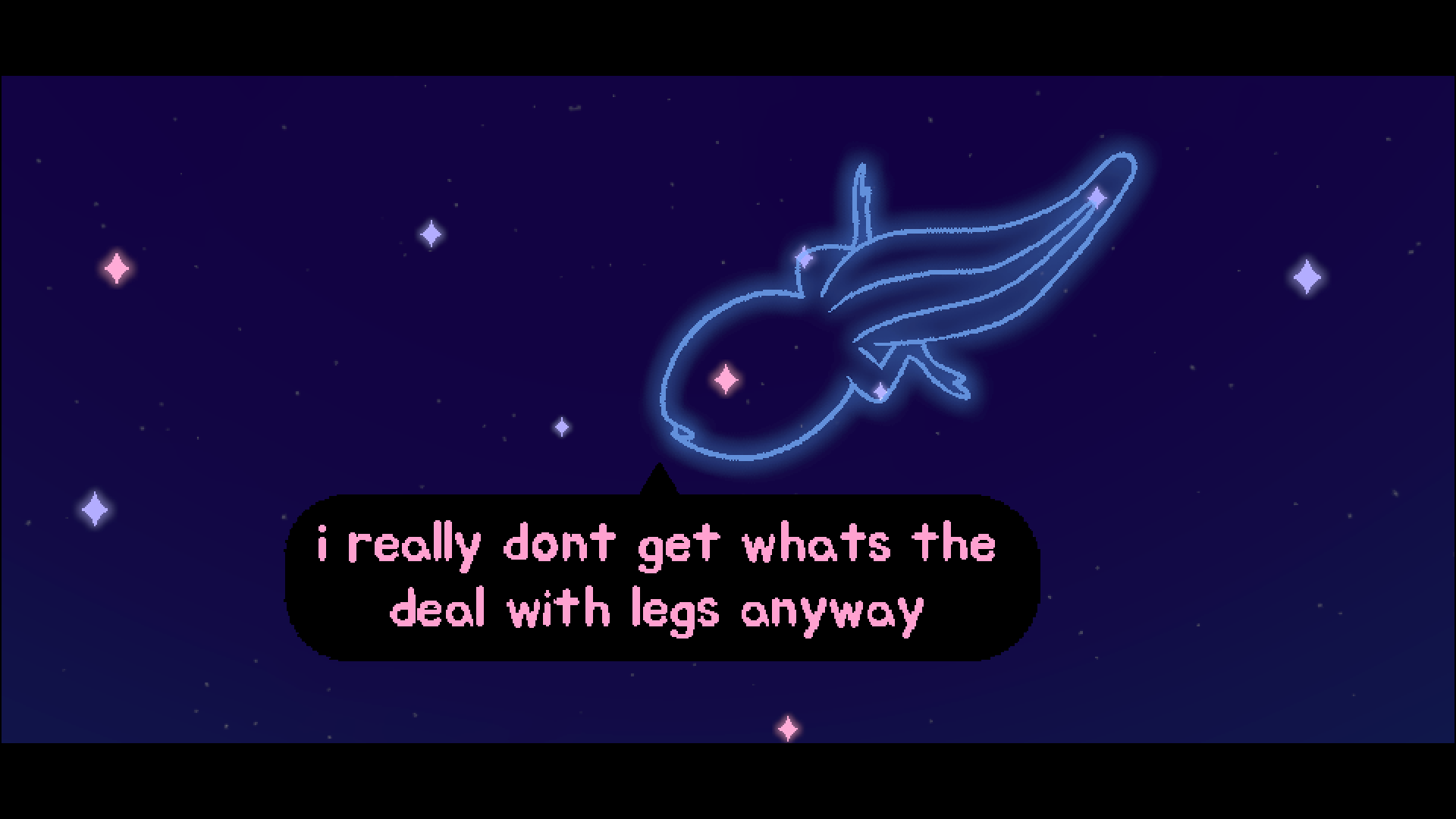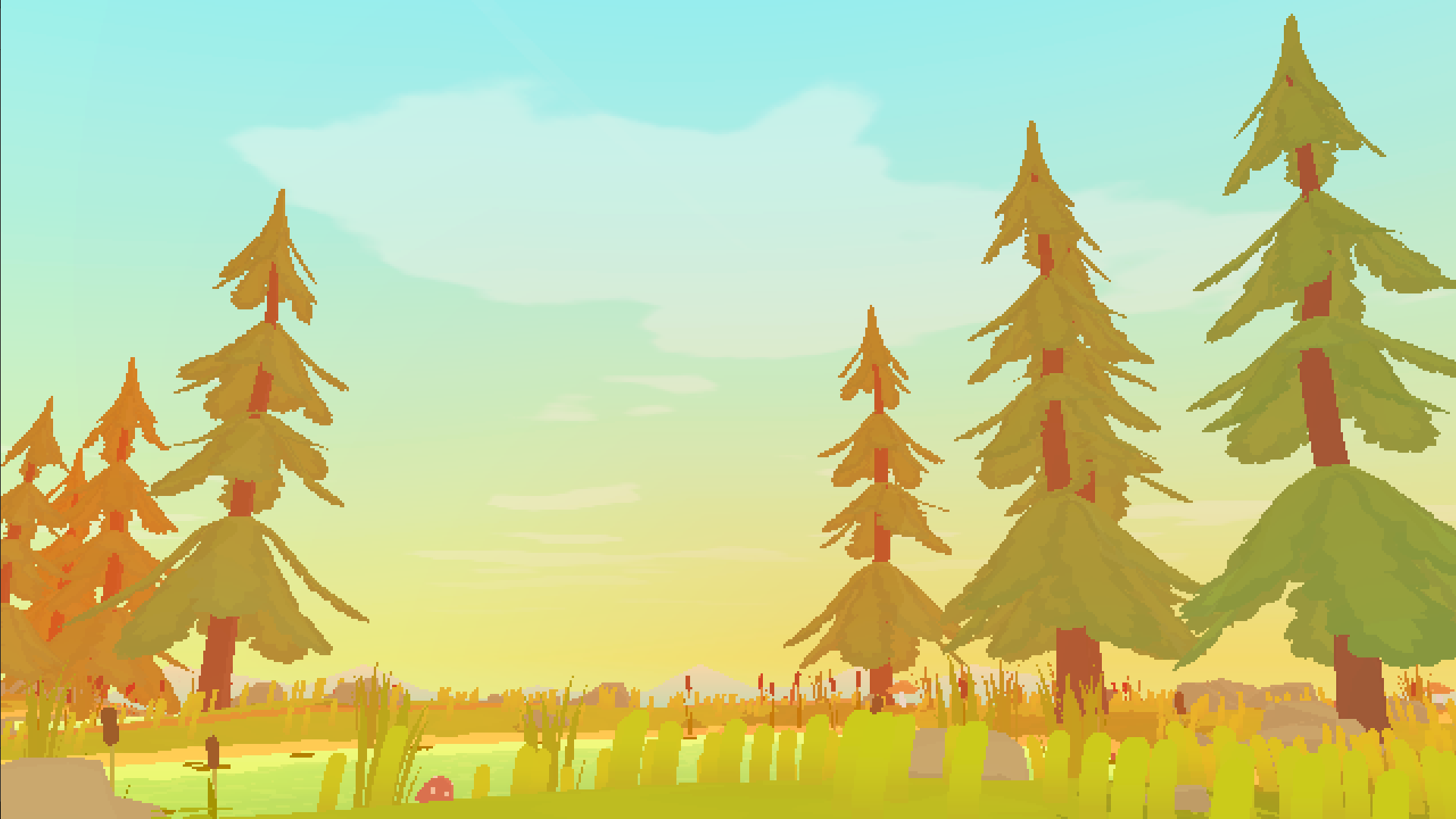Paradise Marsh Review: Repairing the Sky And Beyond
Paradise Marsh is precisely what you think it is in its simplicity but yet, something far more complex. The stars have vanished, so naturally, you need to catch critters to repair the sky and, in turn, the marsh below. Paradise Marsh is a concise and sweet experience filled with effective wordplay and ominous philosophical touchstones. LazyEti has created a calming experience while not perfect, shines in length, vibe, and a fulfilling ending.
Charmingly Blocky
As soon as you boot up Paradise Marsh, you are met with the eye-catching blocky art style that persistently shines throughout. Once you launch into the game, this sense of charm and poetic nature quickly takes over. Its nature remains, but by the end, with the help of the tunes, a more ominous tone takes over that pushes you not only to enjoy yourself but find a sense of meaning from it all.
Jump Up Super Star
As mentioned, Paradise Marsh is a vibe that eventually nudges you into searching for a sense of meaning. While I enjoyed every critter's personality and the poetic rants that would follow, I cannot definitively say I understand it all or am even supposed to.
You set off as an arm and net tasked with resetting the skies' constellations. You do so by catching critters in the marsh, of course. These critters encompass the stars once you catch enough of them. The more you catch, the more you get a small insight into this star or critter's personality. Some of them are uplifting, some not so much, and others are merely ranting poetic wordplay. A common theme that came up for me was the why. Why are we doing all this? Why are you even bothering if we don't owe these stars anything?
LazyEti had a clear vision of not only the technical limitations of their title but the up-to-interpretation narrative they've woven. Once the ending finally managed not to crash, it shined. The end felt fulfilling and meaningful. Without spoiling what transpires before rolling credits—in a game so short and straightforward, completing it felt monumental. It's as if a hardship was conquered, yet it never felt that way in the midst of it. It succeeds in presenting the tasks you're tasked with in a manner that feels soothing, all while building to a climactic symbolic finish.
Marshy Momentum
You start by connecting the first constellation up in the sky. You complete constellations utilizing a troublesome and clunky maneuvering mechanic that persists throughout. It never improved, but I got used to it. The very first constellation you complete is that of the net. It then falls from the sky to you, and your critter-catching experience begins.
The basis of the gameplay is you, as an arm and net, learning the patterns and parameters needed to be met to locate and catch critters. Whether it be a spider, a butterfly, a cricket, a frog, etc., each critter must be caught several times to be completed. Once they are finished, they no longer appear on the procedurally generated marsh, and you are shown that specific constellation's shape in its entirety. Once you catch critters, you are tasked with either waiting until nightfall or manipulating the time of day with the waiting mechanic for the stars to be out. You can turn in the critters you catch as stars. The day and night cycles are short and concise, so continuing to catch whatever you can lay your eyes on became my go-to early on.
It may appear that a lot is going on, but that's not the case. Instead, it’s simple and easy to follow once you get in a groove. You are even given a journal to document your catches, discoveries, and parameters on how to catch even more critters. Outside the main objectives, there is random side content in the form of odd activities or items. For instance, you can skip rocks, throw snowballs, build snowmen, find a walkman of sorts and jam out, collect poems as messages in a bottle, eat mushrooms, or other foods that give you buffs like height, speed, jumping, etc.
Speaking of the game's movement speed, it is prolonged, and you cannot sprint. At first, this bothered me, but with how short the title is in its entirety, it makes total sense. The game could run better when you manage to pick up speed, and I experienced several hitches once my momentum started to build. This forced my play to feature more sneaky and methodical routes whether I wanted to. However, the entire game feels made consciously with this limitation in mind. You can also jump and swing your net in two variations; quick and sneaky or substantial overhead. However, I found myself mashing the swing button to catch most of my catches.
The procedural marsh you are traversing is very small, feeling like the size of a Kai planet for my fellow Dragon Ball fans. As a form of assistance that helped me personally, critters will chirp when they are nearby. So, when traversing this small planet, you are simply waiting to hear the chirp and then beginning to pursue your prey. Yet, sometimes that chirp and a few other sounds glitch and play nonstop for far too long. The small critique only affected my play a bit, but I had to mute my game a few times, rendering this assistance a little inferior.
Breakdown
Game: Paradise Marsh
Developer: LazyEti
Availability: Developer: PC, Nintendo Switch, Xbox One, Xbox Series X|S
Reviewed on Nintendo Switch
Pros:
+ Made with limitations in mind
+ Soothing and simple
+ Game's Assistance
+ Good Ending
Cons:
- Sound glitches
- Hitches
Final Thoughts
Whether it's the game's assistance features like the journal or the chirping, the game's small, slow, and yet quick-to-completion nature, or the poetic and uplifting vibe the game presents, Paradise Marsh feels made deliberately and with care. LazyEti delivers an experience that knows its identity, doesn't ask too much of you, is a delight to control, and can be completed in under four hours with a killer finale. In conclusion, I don't know what I took away from my time with the game, but I took something pleasant and overly optimistic.
By Austin Ernst


